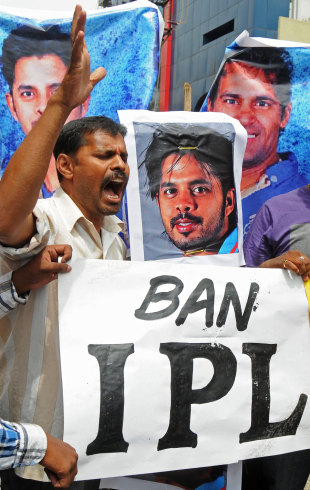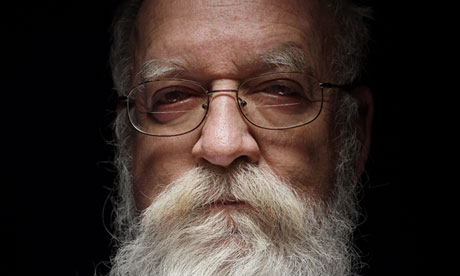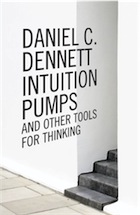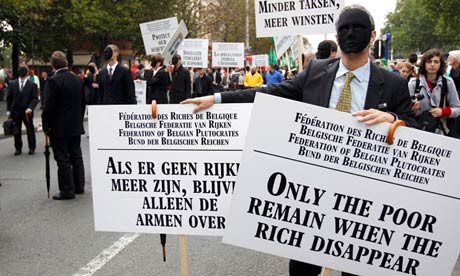It's convenient to blame the underworld for every instance of cricket fixing, but it's ordinary punters who are behind many of them
Ed Hawkins
May 22, 2013

| |||
Related Links
Ian Chappell : Anti-corruption efforts need to be proactive
News : BCCI to regulate player agents News : BCCI suspends trio, Srinivasan says IPL not 'untenable'
In Focus: Corruption in cricket
Teams: India
| |||
In late 2011 and 2012 I met with some of India's illegal bookmakers, stayed in their homes, ate with their families, attended cricket matches with them, watched - and helped - them take bets.
"You were brave," many people say. "Did you not fear for your life?" The answer is the same each time. "No, they were perfectly charming."
Ah, but that is all part of the act, you might say. They are skilled manipulators, those bookies; one minute a flashing smile, the next a flashing blade. And so it has been following the allegations about three Rajasthan players having indulged in spot-fixing in the Indian Premier League.
It is de rigueur these days when such a story breaks that attention is immediately turned on India's underworld, the mafia dons who cajole players into performing favours on the pitch. If they don't put up their side of the bargain, threats and intimidation follow. D Company, the mafia organisation run by the infamous Dawood Ibrahim, usually gets a mention. Then the stock phrase "Once a player is in, he can't get out" trips off the tongue.
But is that really true? Are there players who fear for their life if they fail to concede a certain number of runs off an over? It is possible, but there is evidence that suggests that the underworld grip that threatens to choke a player is a convenient excuse for those caught with their hands in the till.
The "fix" of the sort that Sreesanth, Ankeet Chavan and Ajit Chandila have been accused of is, in polite terms, chicken feed to D Company. They are far more interested in organising match results, where returns are incomparable to those from spot-fixing. This smacks of a low level scam, summed up succinctly by Vinay, a bookie from Bhopal. "We are trying to make our living in a corrupt country, and we do this by taking any opportunity we can," he says.
Quite. The average Indian bookmaker is nothing if not an opportunist, and it is that personality trait, rather than a tendency for violence, that plays a part in fixes. It is an unpalatable truth for cricket that any bookmaker, or punter, given access to a player, can organise a fix without using the word "mafia" or whispering the name "Dawood". Yes, there is an organised crime network at play but the majority of corruption attempted is by small groups of ordinary folk.
To understand why spot-fixing can be so easy to organise is to understand how the illegal Indian gambling market operates, and therefore how it can be manipulated.
There are estimated to be more than 70,000 bookmakers in India. Despite it being unregulated, it is highly organised and works much like a legalised system. In England the big four bookmakers might be considered to be William Hill, Ladbrokes, Bet365 and Coral. Each of those bookies sets their own odds, and supplies them to the managers of their shops dotted all around the country.
In India there are four big bookmakers, known as the syndicates. Two have their roots in Delhi and the others in Mumbai and Nagpur. Each of those bookies sets their own odds and supplies them to managers around the country. These "managers" - in actual fact they are bookmakers themselves - who take bets from their customers are ranked by the size of their customer base. First-tier bookmakers have up to or more than 1000. A fourth-tier bookmaker might have only 20 or 30. Like a franchise arrangement, the "managers" pay for the goods supplied.
There are, though, two significant differences between the English and Indian models. The first is that whereas Hill's and Ladbrokes might offer a wide variety of bets, in India you can only bet on four outcomes: the match result, the innings runs, brackets (a certain number of runs to be scored in a certain number of overs), and what is known as the lunch favourite. The lunch favourite is where the customer is offered a bet on following the team that is the favourite at the lunch break or innings break.
The second is that where Hill's will offer different prices from Ladbrokes for each of their various segments in an IPL match, the Indian system will be almost uniform; the majority of bookmakers will be using the same prices. One set of odds for only four markets, with each syndicate doing its share of the work.
Each of those four syndicates has their own area of expertise. The top Delhi syndicate will look after betting before a ball has been bowled, providing odds pre-match. When the game starts, its work generally stops. The other syndicate connected to Delhi, known as the Shibu, operates the brackets odds. The Mumbai syndicate will take care of the ball-by-ball betting for match odds and innings runs. The fourth, the Nagpur syndicate, is a rival to the Mumbai operation.
So we have a swathe of bookmakers all using the same odds. It is the perfect environment for corruption.
However, it is not an exact science and the anatomy of fixes and the perpetrators can differ. Indeed, Vinay, who is a first-tier bookmaker and close to the syndicate kingpins, estimates that half of all fixes are organised by bookmakers, the rest by run-of-the-mill punters - any Tom, Dick, or Hari who has a relationship with a player.
| There are estimated to be more than 70,000 bookmakers in India. Despite it being unregulated, it is highly organised and works much like a legalised system | |||
The most obvious fixes can come right from the top of the tree: the syndicates, who some believe take their orders from D Company. If a syndicate has organised for a team to lose or paid a bowler to concede a certain number of runs, they can supply "fake" odds to the tens of thousands of bookmakers, influencing millions of gamblers to bet the way they want them to.
If we use a bowler agreeing to concede more than 13 runs an over as an example, the ability to coin the crores from market manipulation is clear. The bracket, normally set for the first six overs in an IPL match, is an over-or-under bet. The syndicate will estimate that, say, between 42 and 45 runs will be scored. Gamblers will reckon it will be lower/higher and bet accordingly.
Before a ball has been bowled the syndicate would have set the bracket, usually for the number of runs in the first six overs, at a figure that punters would have reckoned was too high, tricking them into going low. It is an artful fraud and not 100% foolproof because of the need to get the "fake" bracket quote right from the start.
If the syndicate was not in on the fix then it would have been created by a group of bookmakers who had decided to operate outside of the system. According to sources in the illegal market, this is the most likely scenario in the current case. This theory holds water, given the raft of bookmakers arrested. They could have manipulated the odds in exactly the same way a syndicate would, by convening what is known as a "party", a group of bookmakers who have agreed to pool resources and maximise profits.
Another option would have been for this "party" to become punters for the day, and place multiple bets (the average bet in India dwarfs those in markets where betting is legal, and is estimated at Rs 100,000 or around $1800) by going "over" the brackets, cosseted by their arrangement with the crooked player. They would have roped in friends and family to place the wagers with as many bookies as possible. This is the method used by an ordinary punter with inside information, proving that you don't need to be a bookmaker to fix a match.
What links punter and bookmaker - and there is a relative war for inside information on the illegal markets with one trying to outdo the other - is the acceptance that both are taking a risk. They know that, still, this is a gamble. A bet. Circumstances may conspire against them, so the profligate over organised or the maiden ordered may not transpire. If not, the player pays back the money. Call it honour among thieves.








